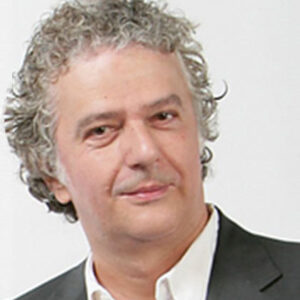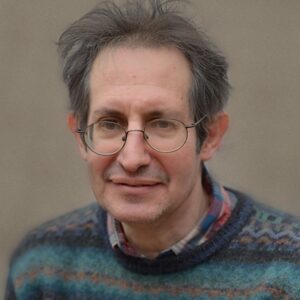RESEARCH KEYNOTE SERIES

Tarek Abdelzaher
Professor (University of Illinois)
Bio: Tarek Abdelzaher received his Ph.D. in Computer Science from the University of Michigan in 1999. He is currently a Sohaib and Sara Abbasi Professor and Willett Faculty Scholar at the Department of Computer Science, the University of Illinois at Urbana Champaign. He has authored/coauthored more than 300 refereed publications in real-time computing, distributed systems, sensor networks, and control. He served as an Editor-in-Chief of the Journal of Real-Time Systems, and has served as Associate Editor of the IEEE Transactions on Mobile Computing, IEEE Transactions on Parallel and Distributed Systems, IEEE Embedded Systems Letters, the ACM Transaction on Sensor Networks, and the Ad Hoc Networks Journal, among others. Abdelzaher's research interests lie broadly in understanding and influencing performance and temporal properties of networked embedded, social and software systems in the face of increasing complexity, distribution, and degree of interaction with an external physical and social environment. Tarek Abdelzaher is a recipient of the IEEE Outstanding Technical Achievement and Leadership Award in Real-time Systems (2012), the Xerox Award for Faculty Research (2011), as well as several best paper awards. He is a fellow of IEEE and ACM.
Title: Intelligent Edge Services and Foundation Models for the Ubiquitous Internet of Things
Abstract: Advances in neural networks revolutionized modern machine intelligence, but important challenges remain when applying these solutions in ubiquitous computing and IoT contexts; specifically, on lower-end embedded devices with multimodal sensors and distributed heterogeneous hardware. The talk discusses challenges in offering machine intelligence services to support applications in resource constrained distributed environments. The intersection of ubiquitous IoT applications, real-time requirements, distribution challenges, and AI capabilities motivates several important research directions. For example, how to support efficient execution of machine learning components on embedded edge devices while retaining inference quality? How to reduce the need for expensive manual labeling of application data? How to improve the responsiveness of AI components to critical real-time stimuli in their physical environment? How to prioritize and schedule the execution of intelligent data processing workflows on edge-device GPUs? How to exploit data transformations that lead to sparser representations of external physical phenomena to attain more efficient learning and inference? How to develop foundation models for IoT that offer extended inference capabilities from time-series data analogous to ChatGPT inference capabilities from text? The talk discusses recent advances in edge AI and foundation models and presents evaluation results in the context of different real-time IoT applications.

Yiannis Aloimonos
(Professor, University of Maryland)
Context-free grammars have been in fashion in linguistics because they provide a simple and precise mechanism for describing the methods by which phrases in some natural language are built from smaller blocks. Also, the basic recursive structure of natural languages, the way in which clauses nest inside other clauses, and the way in which lists of adjectives and adverbs are followed by nouns and verbs, is described exactly. Similarly, for manipulation actions, every complex activity is built from smaller blocks involving hands and their movements, as well as objects, tools and the monitoring of their state. Thus, interpreting a “seen” action is like understanding language, and executing an action from knowledge in memory is like producing language. Several experiments will be shown interpreting human actions in the arts and crafts or assembly domain, through a parsing of the visual input, on the basis of the manipulation grammar. This parsing, in order to be realized, requires a network of visual processes that attend to objects and tools, segment them and recognize them, track the moving objects and hands, and monitor the state of objects to calculate goal completion. These processes will also be explained and we will conclude with demonstrations of robots learning how to perform tasks by watching videos of relevant human activities. Finally we show that the use of LLMs allows the solution to scale up to thousands of actions.

Ernest Davis
(Professor, University of Maryland)

Yevgeniy Dodis
(Professor, University of Maryland)
Bio: Yevgeniy Dodis is a Fellow of the IACR (International Association for Cryptologic Research), and a Professor of Computer Science at New York University. Dr. Dodis received his summa cum laude Bachelors degree in Mathematics and Computer Science from New York University in 1996, and his PhD degree in Computer Science from MIT in 2000. Dr. Dodis was a post-doc at IBM T.J.Watson Research center in 2000, and joined New York University as an Assistant Professor in 2001. He was promoted to Associate Professor in 2007 and Full Professor in 2012.
Dr. Dodis’ research is primarily in cryptography and network security. He worked in a variety of areas, including random number generation, secure messaging, leakage-resilient cryptography, cryptography under weak randomness, cryptography with biometrics and other noisy data,
hash function and block cipher design, protocol composition and information-theoretic cryptography.
In addition to being an IACR Fellow, Dr. Dodis is the recipient of 2021 and 2019 IACR Test-of-Time Awards for his work on Fuzzy Extractors and Verifiable Random Functions, National Science Foundation CAREER Award, Faculty Awards from Facebook, Google, IBM and VMware, and Best Paper Award at 2005 Public Key Cryptography Conference. As an undergraduate student, he was also a winner of the US-Canada Putnam Mathematical Competition in 1995.
Important Deadlines
| Full Paper Submission: | 23rd August 2023 |
| Acceptance Notification: | 10th September 2023 |
| Final Paper Submission: | 20th September 2023 |
| Early Bird Registration | 21st September 2023 |
| Presentation Submission: | 30th September 2023 |
| Conference: | 12 -14 October 2023 |
Previous Conference
Sister Conferences
Search
Announcements
- Best Paper Award will be given for each track.
- Conference Record no- 59035
